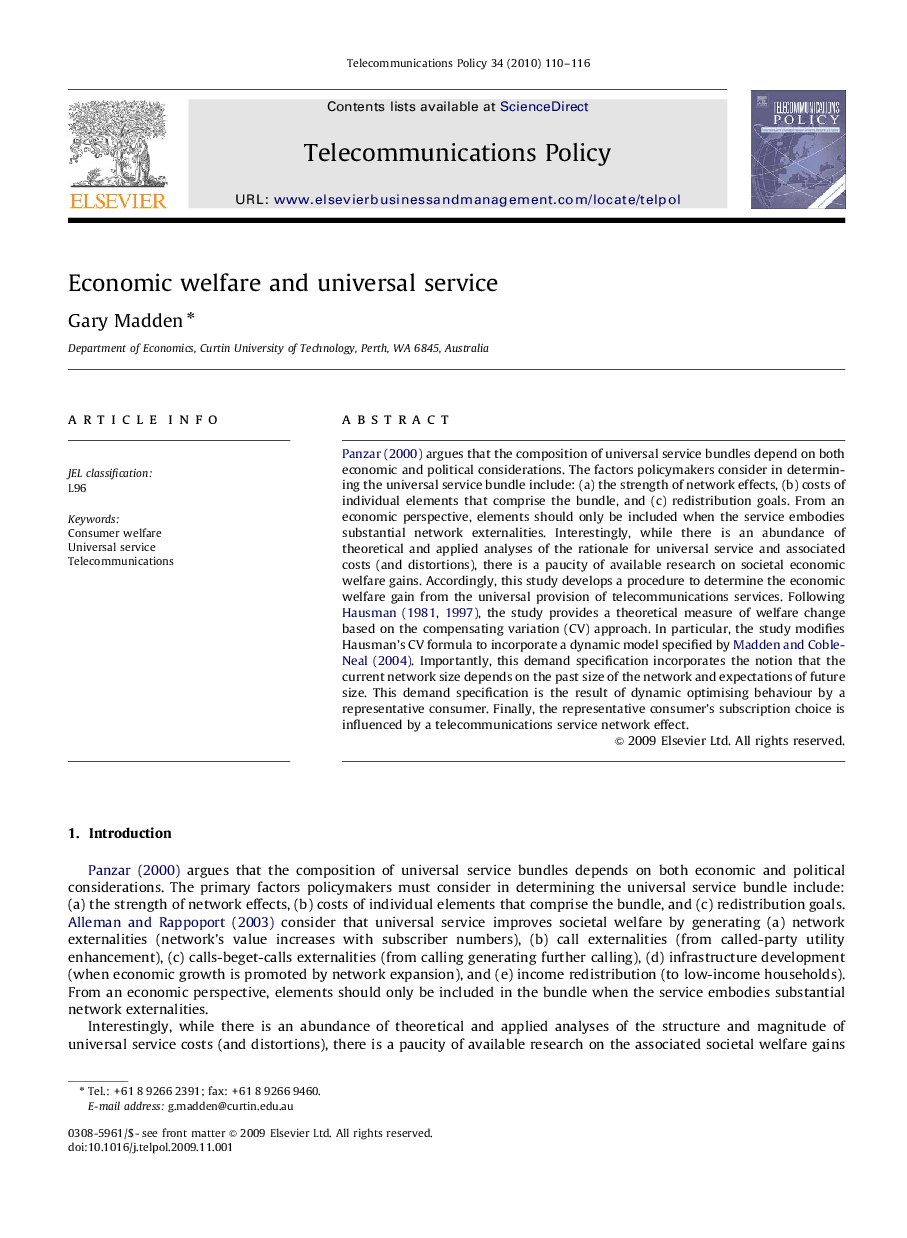| کد مقاله | کد نشریه | سال انتشار | مقاله انگلیسی | نسخه تمام متن |
|---|---|---|---|---|
| 560214 | 1451555 | 2010 | 7 صفحه PDF | دانلود رایگان |

Panzar (2000) argues that the composition of universal service bundles depend on both economic and political considerations. The factors policymakers consider in determining the universal service bundle include: (a) the strength of network effects, (b) costs of individual elements that comprise the bundle, and (c) redistribution goals. From an economic perspective, elements should only be included when the service embodies substantial network externalities. Interestingly, while there is an abundance of theoretical and applied analyses of the rationale for universal service and associated costs (and distortions), there is a paucity of available research on societal economic welfare gains. Accordingly, this study develops a procedure to determine the economic welfare gain from the universal provision of telecommunications services. Following Hausman, 1981 and Hausman et al., 1997, the study provides a theoretical measure of welfare change based on the compensating variation (CV) approach. In particular, the study modifies Hausman's CV formula to incorporate a dynamic model specified by Madden and Coble-Neal (2004). Importantly, this demand specification incorporates the notion that the current network size depends on the past size of the network and expectations of future size. This demand specification is the result of dynamic optimising behaviour by a representative consumer. Finally, the representative consumer's subscription choice is influenced by a telecommunications service network effect.
Journal: Telecommunications Policy - Volume 34, Issues 1–2, February–March 2010, Pages 110–116